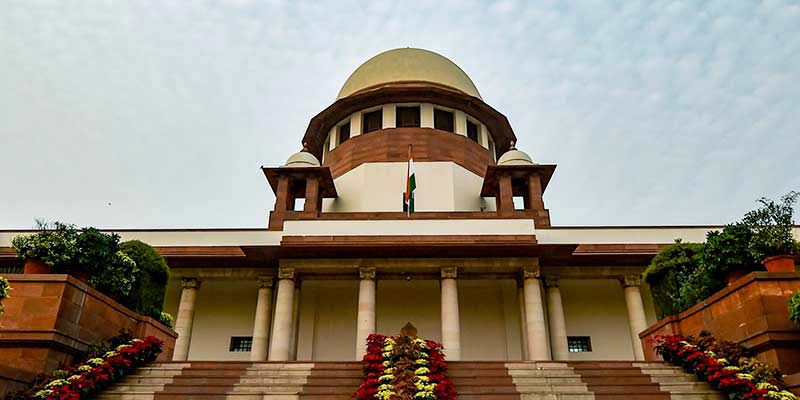- India
- Feb 13
SC deprecates promise of freebies during polls
• The Supreme Court deprecated the practice of political parties promising freebies just ahead of elections.
• A bench of Justices B.R. Gavai and Augustine George Masih asked “aren’t we creating a class of parasites” instead of bringing people into the mainstream and contributing towards national development.
• Hearing a matter concerning the right to shelter of homeless persons in urban areas, the bench said people got free rations and money without working.
• The Supreme Court’s remark came days after the Delhi Assembly elections where all the three major parties — BJP, AAP and Congress — had announced a slew of welfare schemes in their manifesto.
Election freebies
• Election freebies are the offerings/distribution of irrational freebies from political parties as part of electoral promises. Free electricity, free Water, free rides, loan waivers, allowances, laptops, etc are some of the examples.
• Some of these freebies help them to meet basic needs of people and uplift their living standard. But it goes against the roots of free and fair election in a democracy and gives rise to several issues.
• Pleas were filed earlier opposing the practice of political parties promising freebies during elections.
• In 2022, while submitting its recommendations for curbing the freebie culture to an SC bench, the Centre said distribution of freebies has been elevated to the level of an art by some parties recently. Elections are fought only on this plank. It is unfortunate that in the country’s election spectrum some parties understand that distribution of free things is the only way of welfare measures for the society. This understanding is completely unscientific and will lead to an economic disaster.
• Many electricity generating companies and distribution companies, most of which are government companies, are severely stressed financially due to governments waiving electricity bills in fulfilment of their pre-election promise.
Negative impact of freebies
• Economic issues: Freebies are a huge drain on the state exchequer affecting the fiscal balance and macroeconomic stability of the country.
• Political issues: It goes against Article 14 by distorting the level playing field among political parties.
• Socio-psychological issues: Distorted economic decisions lack equity and fairness, leading to various socio-psychological issues such as reduced efforts or laziness, threats to social cohesion by creating artificial divides between haves and have-nots of the associated freebies.
• Environment: Freebies promote unsustainable practices by pushing governments and people away from environmentally sustainable practices. Free electricity reduces incentives for farmers and domestic households to instal solar panels or adopt more efficient public transport systems.
Steps taken by ECI to curb freebie politics
• In India, conducting free and fair elections is the responsibility of ECI.
• In Subramaniam Balaji Vs State of Tamil Nadu (2013), SC observed the lack of provisions and directed ECI to frame guidelines to check freebies in consultation with political parties.
• To ensure electoral process integrity, in 2016 guidelines to check freebies were included under Part VIII of Model Code of Conduct (MCC).
Manorama Yearbook app is now available on Google Play Store and iOS App Store

